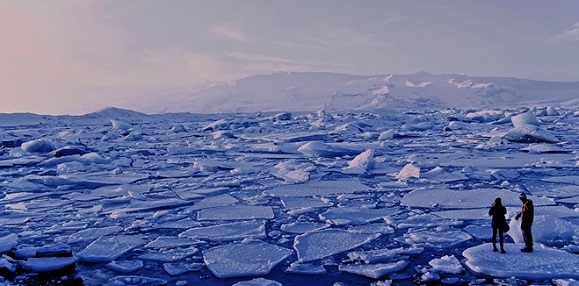The Laptev Sea has not yet begun freezing which could worsen the effects across the polar region
The main nursery of the Arctic Sea ice in Siberia has not begun freezing yet and it's already the end of October. The oceanic temperature have seen a hike of around 5 Degrees Celsius above the regular average. It has been the reason for a record breaking heatwave and also the unusually early decline of last winter's sea ice.
It has been said that the delayed annual freezing of the Laptev sea is caused by heavily protected warmth in the northern region of Russia and the intrusion of Atlantic water.
The heat which is trapped in the water will take a very long time to dissipate into the atmosphere.
2020 is another year which is heavily consistent with the ever changing Arctic. A systematic reduction in Greenhouse gases is not seen which increases the chances of the public to witness the first ever ice free summer.
This year's Siberian heatwave was thought to be made of at least 600 times more by industrial and agricultural emissions.
However, this years warmer temperature was not the only factor which contributed to the slow formation of ice, factors like Climate change were also the prime factors that led to the Atlantic currents breaking into the Arctic and disturbing the stratification of the cold warm temperature of the water, which has made the ice difficult to form.
The delayed freeze could amplify the feedback which will lead to the decline in the ice caps. The Laptev sea is also known as the birthplace of ice, which forms the coast in the early winters. If the ice forms late in the Laptev Sea, it will be very thin and also will be easy to face meltdown. This will lead to fewer nutrients for plankton and will reduce the capacity to draw down carbon dioxide from the atmosphere.
The very delayed formation of ice over the Laptev Sea is a very alarming condition for the world as it will lead to a drastic and bad heatwave for the world to encounter.





The Brief. Sign up to receive the top stories you need to know right now.